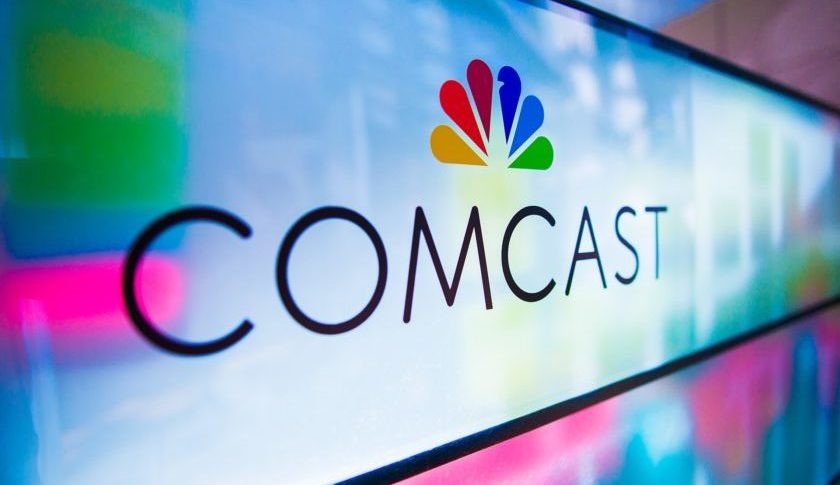M+E Connections

NBCUniversal Has No HBO Max-Type 2021 Film Release Plans for Peacock
Story Highlights
While Comcast’s NBCUniversal division may selectively make new film releases available on Peacock as the COVID-19 pandemic continues, it apparently has no intention of making every 2021 Universal theatrical film release available simultaneously on any tier of its over-the-top (OTT) streaming service as rival Warner recently announced for its HBO Max streaming service. And certainly not unless Peacock subscribers are willing to pay much more to watch new film releases.
That, anyway, is based on comments made Dec. 8 by Jeff Shell, NBCUniversal’s CEO, during the UBS Global TMT Virtual Conference, where he disclosed that Peacock surpassed 26 million subscribers, which is up from the nearly 22 million Comcast reported Oct. 29.
Shell did not, however, provide any specific Peacock plans for any upcoming Universal films.
“What is clear about the film business is, while the rest of the entertainment business evolved in a rapid way across the world, the film business really stayed stuck in the mud on the traditional kind of windowing basis,” Shell said.
What had happened – long before the pandemic – was that many consumers were excited to see certain movies but when they could not get a babysitter on a given weekend, they often didn’t see it theatrically and would instead see it a couple of months later on home video or the following year when it’s on HBO, he explained.
And that, he argued, is “not the right way to maximize what is the Rolls-Royce content of the entertainment business” because “movies drive platforms, and we all invest a lot of money in movies, and we’re leaving a lot of money on the table.”
Shell has “always been a big believer… in two things,” he explained: “One, I think theatrical is a critical part of the movie business, right? What makes movies movies is they’re events. And what makes an event is that you can actually get in your car and drive somewhere and watch something on a big screen with great sound, the way that directors and filmmakers had meant for you to see the property.’’
However, “there’s going to be a growing segment that wants to watch movies in a non-premium way, which is at home,” he pointed out.
Although he predicted that “theatrical will continue to thrive,” he added: “I think that the more windows can collapse so there’s other ways to see things at home in a less premium fashion, the more money is going to be made by everybody involved in the movie business and [that] is better for consumers.”
Shell conceded he did not know how this is “going to evolve.” But he told listeners: “Our particular model at Universal is we believe in the transactional nature of movies because we think that preserves the event nature. Whether you’re going to a theater and paying for a theatrical experience or whether you’re paying for a movie at home, $19.99 to watch it, it makes it a little bit more premium than just turning on your TV and watching something somewhere.”
And that is the business strategy that “we’ve been pursuing on our PVOD model, which has been very successful,” he said, adding it’s obvious that HBO and Warner owner AT&T is “taking a different strategy certainly this year with their slate.”
While anything that “collapses windows” is “going to add value to the whole business,” he predicted: “I think theaters are going to be more than fine over the long term…. I think that when the pandemic is over, God willing, whenever this ends, I think people are going to — there’s going to be a bit like the Roaring Twenties effect, where you’re not going to want to be at home anymore… at least for a period of time. The idea of sitting at home in your apartment on a Friday night, watching Netflix is going to be less appealing than it was before this. And I think people are going to want to leave their house. Whether it’s to go to a sporting event or a concert or a restaurant or hopefully a theme park and certainly to the movie theaters. So I actually think movie theaters are going to be just fine, and that’s where we want our movies to be seen.”
It will, however, still be a “good thing for the economics of the movie business to have another window at home where people can watch movies as well,” he said.
Shell did not disclose how many of the more than 26 million people who have signed up for Peacock so far are actually paying for it. The service has three subscription tiers: Premium Free with ads, Peacock Premium with ads at $4.99 a month and Peacock Premium Plus with no ads at $9.99 a month. Each tier includes TV shows, movies, sports and news.
Those movies so far have included Trolls World Tour, which Universal shifted from a planned theatrical release early on during the pandemic to a Peacock and Hulu streaming release, in addition to a limited number of theaters.
On the film production front, Donna Langley and her team at Universal Filmed Entertainment Group, which she is chairman of, “were the first to really get a major motion picture going again, with Jurassic World,” Shell also said, adding that, “as a result of kind of getting that going and working out the protocols and the testing and everything, we’ve actually completed most of our ’21 slate.”
Universal currently has “maybe one or two productions still finishing up, but now we’re in post-production, so we’re in really good shape on the film side,” he said.
However, “given the current surge” of COVID-19, “we’re kind of pausing production on the film side for a couple of months before we gear up for ’22,” he added.









